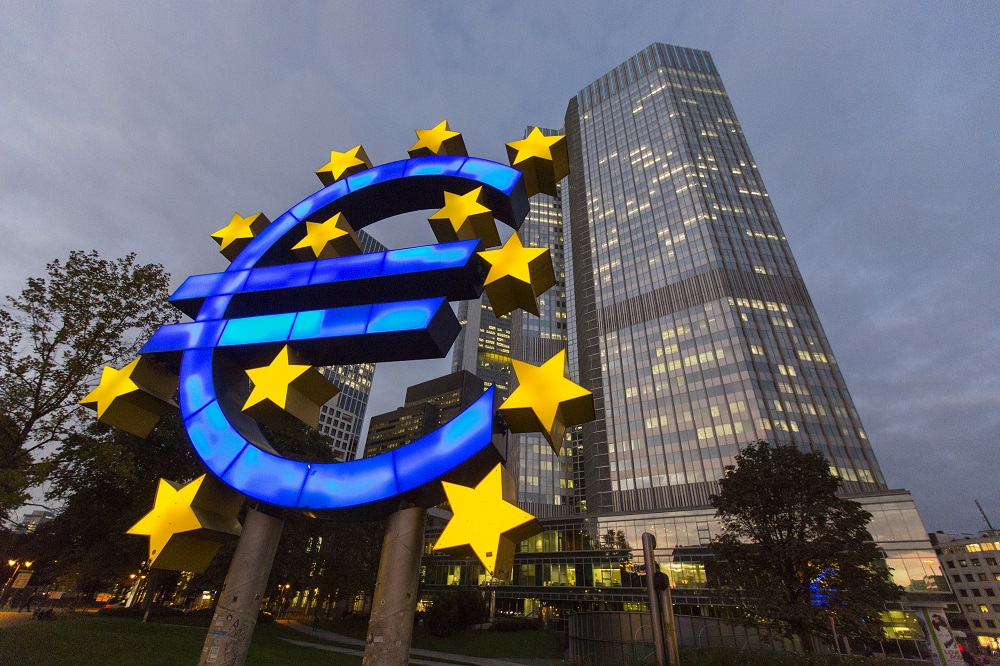European Union
European Central Bank unveils an Instant Payment System

The European Central Bank (ECB) has unveiled an Instant Payment System which they claim it’s ‘Better’ than Blockchain.
The world is just recognizing the countless applications of blockchain technology, not to mention the speed, security and simplicity at which transactions can be completed, and Yves Mersch of Luxembourg has suggested he’s got something that can run circles around it. Mersch, an executive board member of the European Central Bank (ECB), told Bloomberg the organization is readying a new settlement system dubbed Target Instant Payment Settlement, or TIPS, for its November debut, which he suggests leaves blockchain in the dust.
TIPS (not to be confused with US Treasury Inflation Protected Securities) is a product of a knee-jerk reaction among policymakers and regulators to create something that competes with blockchain, with the purpose of offering real-time payment transactions to disrupt the disrupter, if you will, of distributed ledger technology and digital coins.
Mersch, in a separate Bloomberg article, is quoted as acknowledging the connection between what he described as the virtual and physical worlds, saying a “collapse” of the former could trigger a liquidity event in the latter. As a result, cryptocurrencies and the underlying blockchain have captured their attention.
Crypto Culture

Yves Mersch – Photo source: ecb.europa.eu
Mersch touted the features of the new blockchain rival. “TIPS is 10 seconds, 0.2 cents. DLT transactions are at best 30 euros and take at least one hour,” he said, adding that the ECB is more result-driven than technology focused, which he alleges gives it an edge. Policymakers were more engaged than usual in the new technology, no doubt for the unexpected competition that blockchain has introduced.
But there are other alternatives to bitcoin, such as Ripple’s XRP for payments, not to mention the bitcoin-accelerating Lightning Network’s famous pizza transaction.
The fact that the supposed next iteration of a decentralized blockchain is being unveiled by a centralized bank will no doubt raise some eyebrows among participants in the cryptocurrency community. But it also shows the influence that blockchain is having on the establishment, with central bankers finally addressing payments and settlement, which till now has been a cumbersome and antiquated process that’s failed to keep up with the rest of technology.
For his part, Mersch admitted that TIPS is in the early stages, which only underscores blockchain’s headstart on the ECB, not to mention the high-tech and top financial talent who have been educated at Ivy League universities and worked at top Wall Street firms drawn to the crypto culture, including rising stars.
Meanwhile, cryptocurrencies are expected to be in focus at the forthcoming G20 meeting of monetary policymakers and finance ministers, which is to be held in Buenos Aires in March.
Sources: ccn.com and bloomberg.com
-

 Africa5 days ago
Africa5 days agoPlay’n GO takes games portfolio live with the Goldrush Group in South Africa
-

 Asia5 days ago
Asia5 days agoLGUs, state university get Php20-M emergency vehicles from PAGCOR
-

 Africa5 days ago
Africa5 days agoALA Hosted Seminar on Artificial Intelligence and Cybersecurity
-

 Latest News6 days ago
Latest News6 days agoPG Soft serves up Diner Frenzy Spins
-

 eSports5 days ago
eSports5 days agoEsports World Cup 2025 Unveils Official Song of the Year and Full Opening Ceremony Line-up
-

 Africa4 days ago
Africa4 days agoDRC Signs MoU for Public-Private Partnership with Burundi’s East African General Trade Company
-

 Africa4 days ago
Africa4 days agoSpringbok Casino Unveils “Krugerassic Park” Featuring Dino-Wilds to Celebrate Jurassic World: Rebirth Sequel – Plus 25 Free Spins on T-Rex 2 slot
-

 Latest News5 days ago
Latest News5 days agoJuicy Wins, Crystal Clear: ELA Games Releases New Luxury Title






















